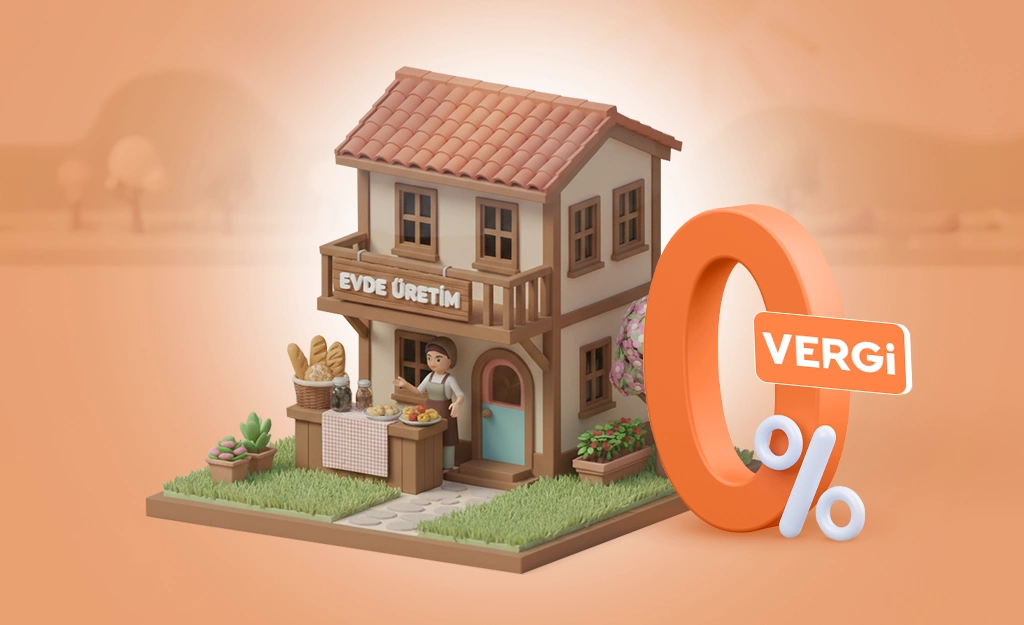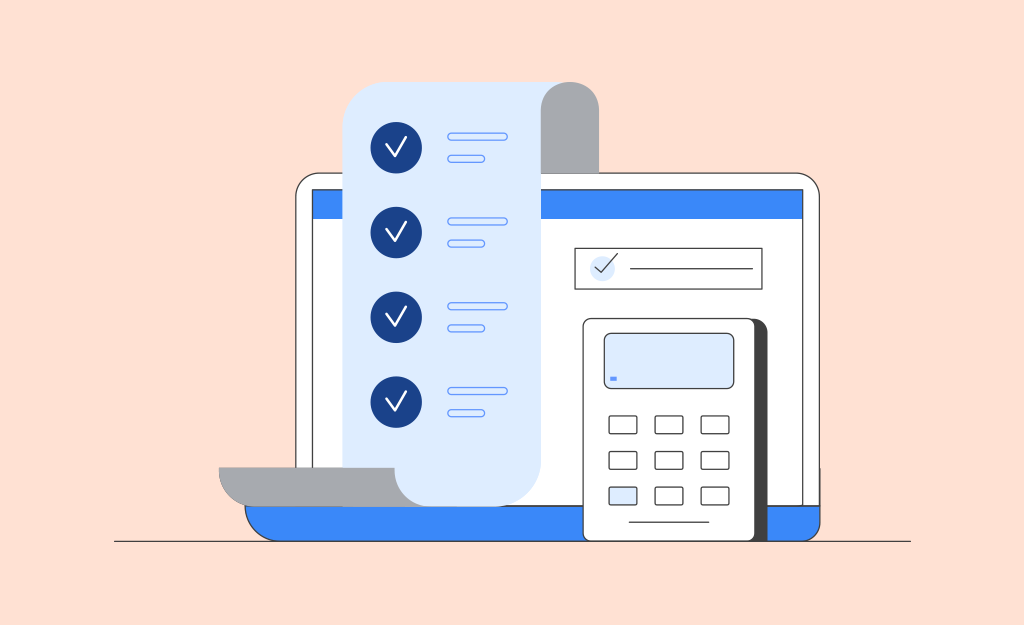For tens of thousands of entrepreneurs engaged in small-scale commercial activities based on their own labor, the Tradesperson Exemption is a vital lifeline. It offers the most practical and legal way to enter the commercial world without the complex and costly processes of tax registration, bookkeeping, and filing declarations. If you are considering selling products made at home, performing small repair jobs, or engaging in mobile commerce, this guide is for you. Here, we will cover every detail you need to know in a clear, step-by-step manner, from the definition of the tradesperson exemption to the updated 2025 limits, application process, and social security status.
What Is the Tradesperson Exemption?
In its most basic form, the Tradesperson Exemption is an income tax exemption for small-scale artisans and traders who meet the conditions specified in Article 9 of the Income Tax Law. These individuals rely more on their own physical and mental labor than on capital. This exemption reflects the government's policy of supporting small entrepreneurs, preventing an unrecorded economy, and ensuring tax fairness.
Individuals who qualify for this right, known as tax-exempt tradespeople, are not required to:
File an annual income tax return for their commercial earnings.
Keep commercial books or ledgers.
Issue invoices or retail sales receipts.
Display a tax registration plate.
These advantages remove a significant bureaucratic and financial burden, especially for those new to business or with a limited scope of activity.
Who Qualifies for the Tradesperson Exemption?
The Income Tax Law clearly defines the groups eligible for the exemption. The key condition is that the activity is conducted without a major commercial organizational structure, relying on personal effort and limited capital.
Eligible groups include:
Mobile Vendors: Those who sell retail goods itinerantly without using a motor vehicle or opening a fixed shop (e.g., simit sellers, street vendors). This does not cover vendors of valuable items like clothing or accessories.
Small Service Providers: Professionals who work itinerantly without a fixed place of business, such as repairpersons, shoe shiners, locksmiths, and plumbers.
Small-Scale Transporters: Individuals who transport goods and passengers using animals, animal-drawn carts, or small, non-motorized watercraft.
Scrap Collectors: Those who collect and sell scrap materials by going door-to-door on their own behalf without a fixed business location.
Home-Based Producers (Most Common): People who produce and sell goods from their homes using their own handiwork, provided they do not employ outside workers or use industrial-type machinery. Products like knitwear, lace, towels, souvenirs, wood carvings, and jewelry fall into this category.
Traditional Artisans: Individuals practicing cultural or artistic professions that are at risk of disappearing, such as coppersmithing, pottery, or mother-of-pearl inlay.
Who Is Not Eligible for the Exemption?
Understanding the limits of the exemption is as important as knowing the requirements. You cannot benefit from the tradesperson exemption in the following cases:
You are already a standard income taxpayer due to other commercial, agricultural, or professional activities.
You are a partner or board member of a capital company (e.g., Limited Liability, Joint-Stock).
You conduct your activities with a continuous and dependent relationship to an income or corporate taxpayer.
As a mobile vendor, you sell products excluded by law, such as clothing or accessories.
Special Exemption for Online Sellers
With digitalization, many home-based producers now sell their products through websites, social media, or online marketplaces. The law provides a special, advantageous regulation for this modern business model.
If you sell your home-produced goods exclusively online, the following rules apply:
A Tradesperson Exemption Certificate is mandatory. You must obtain this certificate from the tax office before starting your activities.
A commercial bank account is required. You must open a commercial deposit account at a bank in Turkey and collect all sales revenue through this account. Receiving cash payments will void the exemption.
Automatic Withholding Tax: The bank will automatically deduct a withholding tax from every transaction deposited into this account. This means you have no separate tax payment duties.
The withholding tax rates for this model are:
General Rate: 4%
Discounted Rate for Employers: 2% (to encourage employment)
2025 Tradesperson Exemption Revenue Limit
The most critical rule for maintaining your exemption is not to exceed the annual gross revenue limits. These limits are updated yearly.
For the 2025 calendar year, the limits are:
For Online-Only Sales (Income Tax Law Art. 9/10): Your total gross revenue in a calendar year must not exceed 1,580,000 TL.
For Mixed Sales (Income Tax Law Art. 9/6): If you sell products both online and in physical locations (markets, fairs, etc.), your annual revenue from online sales must not exceed the gross annual minimum wage, which is 312,066 TL for 2025.
Important: If you exceed either of these revenue limits, you will become a standard taxpayer starting from the beginning of the following calendar year. You will permanently lose your right to this exemption and cannot re-qualify for it in the future.
How to Get a Tradesperson Exemption Certificate
The Tradesperson Exemption Certificate is the official document proving you meet the exemption criteria. Obtaining it is strongly recommended, especially for online sellers or those who regularly do business with other taxpayers.
Application Process:
Where to Apply: The tax office in the district of your legal residence.
How to Apply:
In-Person: By submitting a petition directly to the tax office.
Online: Through the Turkish Revenue Administration's Interactive Tax Office (İVD) portal or via e-Devlet.
Required Documents: A completed application petition and a copy of your ID are typically sufficient. The certificate is issued free of charge and is valid for three years, after which it must be renewed.
Withholding Tax and Documentation
Being tax-exempt does not mean your earnings are entirely untaxed. Taxation occurs indirectly through a withholding tax (known as stopaj).
When a taxpayer (like a company or another tradesperson) buys goods or services from you, they must issue an Expense Note (Gider Pusulası) to document the payment. This document acts as an invoice for you. The buyer is responsible for withholding tax from the gross amount paid to you and remitting it to the tax office on your behalf.
Withholding Tax Rates and Calculation:
2% for home-produced goods like towels, knitwear, and lace.
2% for scrap material purchases.
5% for other goods purchases.
10% for other service purchases (e.g., repairs, maintenance).
Social Security Obligations (Bağ-Kur)
A common point of confusion is social security. Being exempt from income tax does not automatically enroll you in or exempt you from the social security scheme for the self-employed (4/b or Bağ-Kur).
If you have no other social security coverage (e.g., from employment or a pension), you must register for optional insurance to receive retirement and health benefits. In this case, you are responsible for paying your own monthly premiums. For 2025, the minimum monthly premium for an optionally insured tradesperson is 8,321.76 TL, calculated based on the gross minimum wage.
When understood and applied correctly, the tradesperson exemption is an incredible advantage for small entrepreneurs. By carefully following the conditions outlined in this guide, especially the annual revenue limits, you can operate your business on a legal and tax-advantaged footing.
Disclaimer: The information in this article is for general informational purposes only and does not constitute professional financial, legal, or tax advice. Legal regulations, rates, and monetary limits are current as of the date of publication and may change over time.



